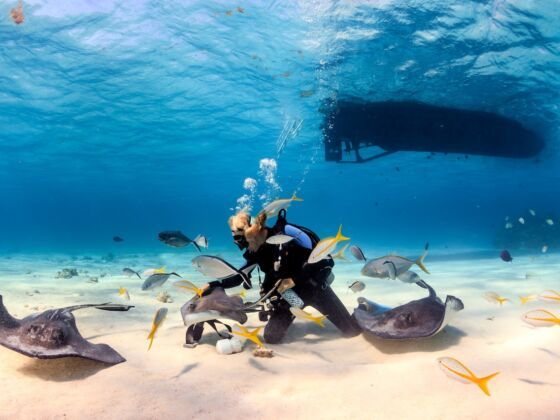SCUBA DIVERS LIKE to go deep and stay there for a while. They want to better understand the ocean environment, to feel as much like a fish as possible.
Any scuba dive course will teach you some crucial, potentially life-saving information. It just so happens that it can also give you a few travel tips to help you immerse yourself abroad as well.
